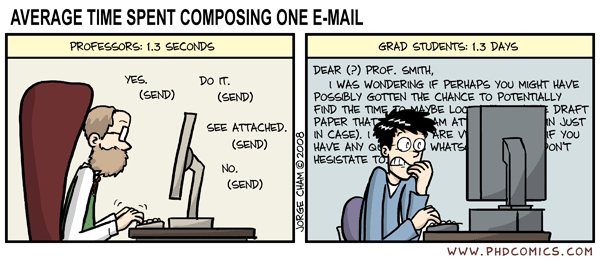Over at Macuser Dan Moren replies to the question “why can’t all iPhone apps be free? posed by Anita Hamilton in TIME. Moren widens the question to apply to the whole concept of free stuff but naturally focuses on free software. His point is the way in which the public at large have connected the concept of free (gratis) with the idea of value.
We are not entitled to software any more than we are entitled to the other products that we buy day in, day out. We’ve been spoiled because so many developers give things away for free (which, of course, is their prerogative), and we’ve gotten used to the idea of streaming our television online, or even stealing our music from file-sharing services. The idea of “free” has been co-opted into the idea that products aren’t worth money—which couldn’t be farther from the truth.
This is good stuff up until the end. I don’t think that people stealing music, downloading films or demanding free software are confused into thinking that these products are not worth money. But this does not detract from the main point in the paragraph that we are not entitled to stuff (for free).
On a primary level this is obviously true but it is not all the truth. On the level of basic needs (human, cultural, physical) there are naturally arguments to be made that stuff should be free. There are even easy arguments to be made that it is acceptable to break rules, laws & regulations when such basic needs are threatened. In addition to this there is the problematic area that we are bombarded with false needs through advertising which state (implicitly) that we are less evolved as beings unless we have the latest widget, designer toy or status gizmo. Naturally the latter is not a clear argument but it does certainly muddy the waters.
The problem with free, as Moren sees it comes with value and payment:
The whole point of payment is that you give someone money to take care of a problem that you don’t want to do yourself. You could save a bundle of money by not hiring people to cut your grass, for example, but then you’ll have to use the time you’d rather spend doing something else mowing the lawn yourself. Just as you could save some cash by developing a word-processor yourself, but heck, in the long run, it’s probably cheaper to let Microsoft do it for you.
This is economics at its most basic. Seriously. It doesn’t get any more basic than this.
This is an excellent argument and as Moren writes, it doesn’t get any more basic than this. But this only focuses on the economic transaction not on the social effects of such transactions. It is cheaper to let Microsoft create my word processor. But the problem occurs not at this stage. The problem occurs when I realize, for any reason, that I would prefer to have a word processor not built solely on economic gounds but with values of openness and transparency. Perhaps I would like to ensure that future developments within the word processor field have the ability to develop in a multitude of ways that neither Microsoft or anyone else has thought of today. Or perhaps I would just like to have Open Office on my computer becuase I like the name.
If we ony concentrate on the transaction cost argument (cheaper for Microsoft to develop than me) and we isolate the transaction and the product out of the wider context computers and communication then there is no problem. But this is unrealistic. I do not buy software alone. It is not useful without other products. Transactions are not isolated alone but a part of a system with economic, technical, political and social ramifications.
The importance of Free Software is not in giving the public free (gratis) stuff. It is in the ability for all users (via other developers) to access and control their infrastructure. In the same way as free speech is important not becuase I may one day have something important to say but becuase every day thousands of people are saying important things and one day I may just accidently happen to listen.



